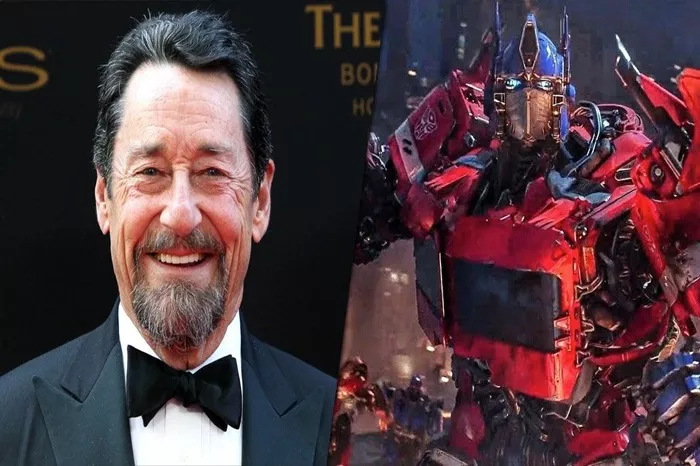Peter Cullen’s iconic voice as Optimus Prime is synonymous with the “Transformers” franchise. Fans of the original 1980s animated series and the subsequent live-action movies have come to associate Cullen’s voice with the character. However, his absence from “Transformers One” has raised questions and speculation. This article explores the reasons behind this decision and its impact on the franchise.
The Legacy of Peter Cullen
A Voice That Shaped a Generation
Peter Cullen’s portrayal of Optimus Prime began in the 1980s animated series “The Transformers.” His deep, resonant voice brought a sense of wisdom and leadership to the character, making Optimus Prime one of the most beloved characters in the franchise.
Impact on Fans: Cullen’s voice has been a comforting and familiar presence for fans over the decades. His voice work has helped define the character’s moral compass and leadership qualities.
Consistency in the Franchise: Cullen’s continuous involvement in the franchise, especially in the Michael Bay-directed live-action films, provided a sense of continuity and nostalgia for long-time fans.
Contribution to the Franchise’s Success
Cullen’s contribution to the success of the “Transformers” franchise cannot be overstated. His voice work has been pivotal in establishing the franchise’s global appeal and emotional resonance.
Global Recognition: Optimus Prime, as voiced by Cullen, is recognized worldwide. His voice became a trademark of the character, making it instantly identifiable.
Emotional Connection: Cullen’s voice brought depth and emotion to Optimus Prime, making scenes more impactful and memorable for the audience.
See also: Will Transformers One Be in Theaters?
The Decision to Exclude Peter Cullen
Creative Vision and Direction
The decision to exclude Peter Cullen from “Transformers One” was primarily driven by the creative vision of the filmmakers. They aimed to explore a new direction and narrative style, which necessitated a different voice for Optimus Prime.
Reimagining the Character: The filmmakers wanted to reimagine the character of Optimus Prime for a new generation, which included changes in his portrayal and voice.
New Narrative Approach: “Transformers One” was designed to explore new storylines and character developments, requiring a fresh take on the characters.
Casting Decisions
Casting decisions for “Transformers One” were influenced by various factors, including the desire to appeal to a younger audience and to bring a new perspective to the characters.
Appealing to a New Audience: The filmmakers aimed to attract a younger demographic by introducing new voice actors who could bring a different energy and interpretation to the characters.
Exploring New Talents: The decision to cast a new voice for Optimus Prime allowed the filmmakers to explore new talents and voices, offering a fresh take on the iconic character.
The Impact of the Decision
Fan Reactions
The decision to exclude Peter Cullen from “Transformers One” sparked mixed reactions from fans. While some were excited about the new direction, others were disappointed by the absence of the iconic voice.
Disappointment Among Long-Time Fans: Many long-time fans expressed disappointment and nostalgia for Cullen’s voice, which they felt was integral to the character of Optimus Prime.
Curiosity and Anticipation: Some fans were curious and excited about the new portrayal of Optimus Prime, looking forward to seeing how the character would be reimagined.
Critical Reception
The critical reception of the decision to exclude Cullen was varied, with some critics appreciating the new direction, while others questioned the move.
Praise for Innovation: Some critics praised the filmmakers for their bold decision to innovate and explore new narratives and voices for the characters.
Criticism for Lack of Continuity: Others criticized the decision, arguing that Cullen’s absence disrupted the continuity and emotional connection established in previous films.
Conclusion
The decision to exclude Peter Cullen from “Transformers One” reflects a balance between tradition and innovation. While it may disappoint some long-time fans, it also opens the door for new interpretations and voices in the franchise.
In conclusion, Peter Cullen’s absence from “Transformers One” is a significant decision that reflects the evolving nature of the franchise. While it may have sparked mixed reactions, it also highlights the creative vision and direction of the filmmakers, offering new possibilities for the beloved characters and their stories.
FAQs
1. Who is voicing Optimus Prime in Transformers One?
In Transformers One, Optimus Prime is voiced by Chris Hemsworth. His performance brings a fresh take to the iconic character, exploring his origins in a new light.
2. Which Transformer does Chris Hemsworth voice?
Chris Hemsworth voices Optimus Prime in Transformers One. His portrayal delves into the early days of the character, providing a unique perspective on the leader of the Autobots.
3. Is Transformers One a prequel?
Yes, Transformers One is a prequel. It explores the origins of the Autobots and Decepticons, providing background and context to the familiar events of the main Transformers saga.
4. Who is the shortest Transformer?
In the Transformers universe, the shortest Transformer is often considered to be the character of Bumblebee. While his height can vary depending on the continuity, he is typically depicted as one of the smaller Autobots.
5. What happened to the original Optimus Prime?
The original Optimus Prime, known for his heroic leadership and sacrifice, faced several pivotal moments across different series. In Transformers: The Movie (1986), he was critically injured in battle against Megatron and later passed on the Matrix of Leadership to Ultra Magnus. In later continuities and reboots, his legacy continues, but the character’s fate varies with each storyline.
Related topic:
Where to Watch Transformers: Rise Of The Beasts
Why isn t sam witwicky in Transformers 4
Will Transformers One Be CGI? [Revealed]

